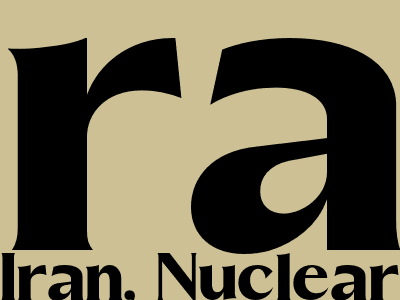
Iran: Khamenei's Nuclear Threat Echoes Amidst Israeli Concerns and International Tensions
Tehran's Nuclear Ambitions Stir Unease in the Middle East
Iran's nuclear program has once again become a focal point of international concern, with Supreme Leader Ali Khamenei's recent statements reigniting fears of nuclear proliferation in the Middle East. Khamenei's declaration that Iran "will certainly build nuclear weapons if it needs them" has sent shockwaves through the region, particularly in Israel, which views Iran as an existential threat.
Israel's Deep-Rooted Security Concerns
Israel has long held deep security concerns about Iran's nuclear ambitions. The two countries have a history of conflict and animosity, and Israel fears that a nuclear-armed Iran could pose a grave threat to its security. Israel has consistently opposed Iran's nuclear program, arguing that it is a cover for the development of nuclear weapons.
In response to Khamenei's recent statements, Israeli Prime Minister Benjamin Netanyahu has called on the international community to "wake up" and take action to prevent Iran from acquiring nuclear weapons. Netanyahu has warned that Iran's nuclear ambitions pose a threat not only to Israel but also to the entire Middle East and beyond.
International Tensions and Diplomatic Efforts
Khamenei's nuclear threat has also raised tensions with the international community. The United States and its allies have long sought to prevent Iran from developing nuclear weapons, and they have imposed sanctions and other measures to pressure Iran to abandon its nuclear program.
In recent years, there have been diplomatic efforts to resolve the Iran nuclear crisis, most notably the Joint Comprehensive Plan of Action (JCPOA), which was signed in 2015. The JCPOA placed limits on Iran's nuclear program in exchange for the lifting of sanctions. However, the Trump administration withdrew the United States from the JCPOA in 2018, and Iran has since gradually rolled back its commitments under the agreement.
The Way Forward: Diplomacy and Deterrence
The path forward in addressing the Iran nuclear crisis is complex and fraught with challenges. Diplomacy remains the preferred option, and it is essential for all parties involved to engage in good faith negotiations to find a mutually acceptable solution.
At the same time, it is important to maintain a credible deterrence against Iran's nuclear ambitions. The international community must make it clear that any attempt by Iran to develop nuclear weapons will be met with a swift and decisive response.
Conclusion
Iran's nuclear ambitions continue to cast a long shadow over the Middle East and beyond. Khamenei's recent nuclear threat has raised tensions and highlighted the urgent need for a diplomatic solution to this complex issue. The international community must work together to find a way forward that ensures the security of Israel and the stability of the region.